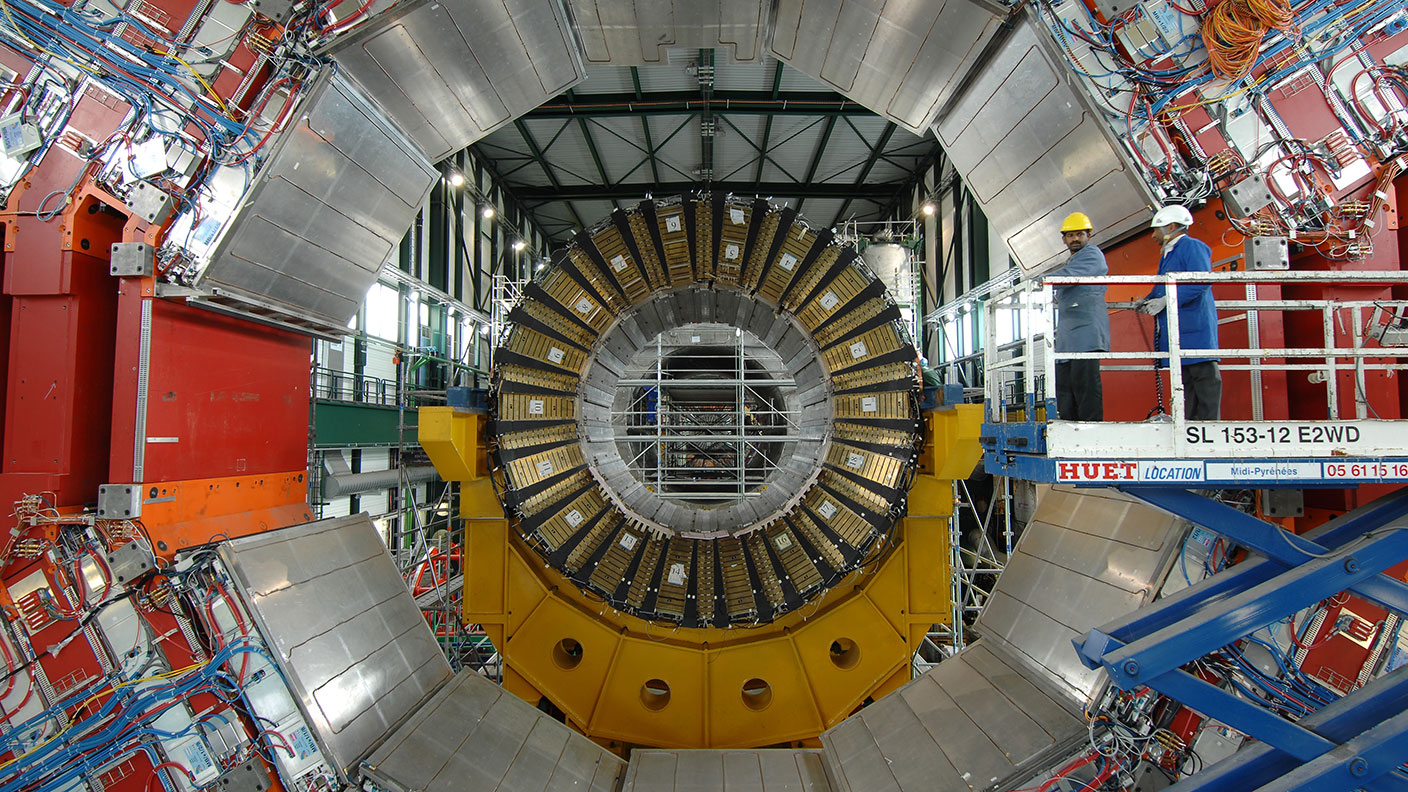
Get the latest financial news, insights and expert analysis from our award-winning MoneyWeek team, to help you understand what really matters when it comes to your finances.
You are now subscribed
Your newsletter sign-up was successful
Want to add more newsletters?

Twice daily
MoneyWeek
Get the latest financial news, insights and expert analysis from our award-winning MoneyWeek team, to help you understand what really matters when it comes to your finances.

Four times a week
Look After My Bills
Sign up to our free money-saving newsletter, filled with the latest news and expert advice to help you find the best tips and deals for managing your bills. Start saving today!
On this day in 2008, a lot of people woke up and ate their cornflakes under a cloud of worry. They were concerned that, later in the day, the earth would be swallowed up into a black hole created accidentally by mad scientists in Switzerland, and we would all be crushed into nothingness.
The European Organisation for Nuclear Research, AKA Cern, was looking to confirm the existence of the world's first celebrity sub-atomic particle, the theoretical Higgs boson, known to headline-writers the world over as the “God particle”. (A boson is one of two classes of particles in sub-atomic physics. The other is called a fermion.)
In very, very short, it was hoped that by discovering the Higgs boson, boffins could prove that the so-called “Standard Model” of particle physics was correct, and life could carry on as normal.
MoneyWeek
Subscribe to MoneyWeek today and get your first six magazine issues absolutely FREE

Sign up to Money Morning
Don't miss the latest investment and personal finances news, market analysis, plus money-saving tips with our free twice-daily newsletter
Don't miss the latest investment and personal finances news, market analysis, plus money-saving tips with our free twice-daily newsletter
To find it, Cern built the world's biggest particle accelerator, a 27km-long ring of superconducting electromagnets, cooled to a temperature of -271.3C. In it, particles would be fired at other particles at a speed approaching the speed of light. Scientists would then observe what happened, to see if a Higgs boson appeared.
And so, on 10 September, 2008, the Large Hadron Collider was switched on. Some doom-mongers speculated that the smashing together of the particles would create a black hole that would grow uncontrollably, feeding on Mont Blanc and the Matterhorn before swallowing the whole of the solar system and everyone in it.
Thankfully, that didn't happen. As Cern itself says, “LHC collisions present no danger and that there are no reasons for concern”.
Finally, after almost four years of research, the Higgs boson – or at least, a particle “consistent with” the Higgs boson – was found on 4 July 2012. Unfortunately, it wasn't quite what everyone had expected, which just led to a lot more questions. Scientists are still trying to work out just what the existence of the Higgs boson actually tells us.
Get the latest financial news, insights and expert analysis from our award-winning MoneyWeek team, to help you understand what really matters when it comes to your finances.

-
 Should you buy an active ETF?
Should you buy an active ETF?ETFs are often mischaracterised as passive products, but they can be a convenient way to add active management to your portfolio
-
 Power up your pension before 5 April – easy ways to save before the tax year end
Power up your pension before 5 April – easy ways to save before the tax year endWith the end of the tax year looming, pension savers currently have a window to review and maximise what’s going into their retirement funds – we look at how
-
 31 August 1957: the Federation of Malaya declares independence from the UK
31 August 1957: the Federation of Malaya declares independence from the UKFeatures On this day in 1957, after ten years of preparation, the Federation of Malaya became an independent nation.
-
 13 April 1960: the first satellite navigation system is launched
13 April 1960: the first satellite navigation system is launchedFeatures On this day in 1960, Nasa sent the Transit 1B satellite into orbit to provide positioning for the US Navy’s fleet of Polaris ballistic missile submarines.
-
 9 April 1838: National Gallery opens in Trafalgar Square
9 April 1838: National Gallery opens in Trafalgar SquareFeatures On this day in 1838, William Wilkins’ new National Gallery building in Trafalgar Square opened to the public.
-
3 March 1962: British Antarctic Territory is created
Features On this day in 1962, Britain formed the British Antarctic Territory administered from the Falkland Islands.
-
10 March 2000: the dotcom bubble peaks
Features Tech mania fanned by the dawning of the internet age inflated the dotcom bubble to maximum extent, on this day in 2000.
-
9 March 1776: Adam Smith publishes 'The Wealth of Nations'
Features On this day in 1776, Adam Smith, the “father of modern economics”, published his hugely influential book The Wealth of Nations.
-
 8 March 1817: the New York Stock Exchange is formed
8 March 1817: the New York Stock Exchange is formedFeatures On this day in 1817, a group of brokers moved out of a New York coffee house to form what would become the biggest stock exchange in the world.
-
7 March 1969: Queen Elizabeth II officially opens the Victoria Line
Features On this day in 1969, Queen Elizabeth II took only her second trip on the tube to officially open the underground’s newest line – the Victoria Line.
